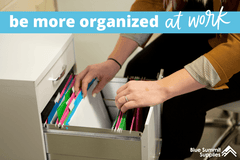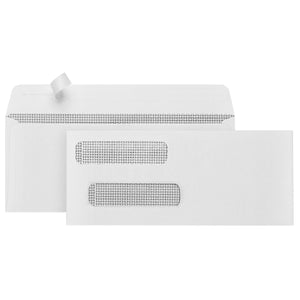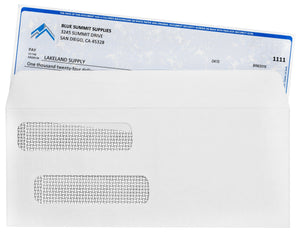There are a variety of different types of commercial real estate leases available to business owners, but do you know which type is best for your business? We’ll outline the most common types of commercial leases, including a gross modified lease, gross lease, and net lease, to help you weigh the pros and cons of each.
We’ll also share strategies on how to lease an office, what to look for, and how to go about finding an ideal space.
Types of Commercial Leases Explained
The world of commercial leases can be confusing. Here we’ll explain the different types of commercial leases. The main difference between all leases comes down to what the tenant or the landlord pays for, such as utilities, property taxes, insurance, building maintenance, and operating costs.

What is a Gross Lease?
A gross lease, also known as a full-service lease, is the most straightforward of commercial leases. The tenant pays a flat rate that covers rent, utilities, and all property operating expenses, like property taxes and building maintenance. They only pay one bill, which is typically higher than other types of commercial leases. The landlord pays all property taxes, including building insurance and maintenance.
In a gross lease, sometimes there is an “escalation clause” to account for an increase in insurance or taxes. Sometimes there is an exception to the flat rate if, for example, your utility bill is high because you used a lot of air conditioning one month.

What is a Modified Gross Lease?
A modified gross lease differs from a gross lease in that the tenant begins by paying a base rate the first year, and the next year they pay a portion of the property taxes, utilities, building insurance, and/or building maintenance costs.
The benefit of a modified gross lease is that the tenant has more control over the cost. They can save money by being more efficient in utility usage, etc. While they still pay for some building operating costs, they are not completely responsible for them as they only pay a part of it.
A base year rate is used to calculate how much of the operating costs the tenant will pay. This is the rent amount for the first year the tenant occupies the space. In the second year, the tenant starts paying a proportionate amount of operating expenses.

What is a Net Lease?
A net lease is a highly flexible commercial real estate lease. The tenant’s rent is usually lower than a gross lease because the tenant also takes on some of the fixed operating costs, such as property taxes, insurance, and common area maintenance.
How much of the operating costs the tenant will pay is often calculated by dividing the total operating cost by the square footage of space rented by the tenant.
There are three types of net leases: a single net lease, a double net lease, and a triple net lease (also known as an NNN lease).
What is a Single Net Lease?
In a single net lease, the tenant pays rent, utilities, and property taxes. The landlord covers the building insurance and maintenance.
A single net lease is not the same as a net lease—it is a type of net lease. A net lease can be either single, double, or triple.

What is a Double Net Lease?
Another type of lease is a double net lease, also known as a net net lease. Here, the tenant pays the rent and utilities as well as the property taxes and building insurance. The landlord pays for the building’s maintenance.
Because the tenant takes on the property taxes and building insurance, the rent is often lower.

What is a Triple Net Lease?
A triple net lease, also known as an NNN commercial real estate lease, is a very common type of commercial real estate lease. You can think of it as the opposite of a gross lease. Here, the tenant pays the rent and utilities, as well as operating expenses like building maintenance, insurance, and property taxes. The landlord is only responsible for repairs to the building roof and structure.
Because the tenant is taking on the expenses that would otherwise be paid by the landlord, the rent is typically much lower. However, sometimes the operating costs of maintenance, insurance, and taxes can be much more than the tenant expects. Tenants may often try to break the lease, but landlords may try to design the lease so that it can’t be broken.

What is an Absolute NNN Lease?
An absolute NNN lease is sometimes used interchangeably with a triple net lease, also known as an NNN lease, but they are not the same. Here, the landlord passes all expenses to the tenant, including the repairs to the structure and roof of the building.
So the tenant is responsible for paying the rent, utilities, taxes, insurance, maintenance, and structural costs. While it seems like the tenant essentially owns the property, they haven’t actually purchased it.
An absolute net lease will likely have a very low base rent because the tenant assumes all of the risks and responsibilities. These leases are usually only offered to tenants who have very good credit and have many locations nationally or regionally.
How to Rent Office Space: What to Look For
How to rent an office may seem straightforward, but there are a few questions and strategies that will help you complete your search.
-
Location
- What parking is available for your staff?
- Is there bike parking or bike storage?
- What parking options will be available to your customers or clients?
- Is the location convenient for your customers and clients to reach?
- How far of a commute will it be for most of your employees?
- Is it accessible via public transportation? Is it close to the freeway?
- What are the typical traffic patterns?
- How close are lunch options?
- What other amenities are nearby? Banks? Repair shops? Coffee shops?
- Are there any major events that might disrupt working conditions?
-
Amenities
- How old is the building? Will anything need to be renovated soon?
- Is the space furnished?
- Does it accommodate people who prefer to work in private offices and those who prefer open-plan offices?
- How well does the elevator work? Is it fast enough? Is it crowded?
- Are there enough windows, and what will natural light be like throughout the day?
- How many meeting spaces are there, including conference rooms, common areas, and kitchens?
- Are there enough bathrooms to accommodate your staff and any office visitors you may have?
- Is there enough space for your organization to grow?
- How much can you customize the space? For example, could you knock down a wall or install your own curtains?
-
Security
- Does the location have keycard access?
- Does the building close or is it accessible 24 hours?
- Where are the security cameras?
- Are there security personnel on-site?
- What procedures are in place in case of an emergency?
- What is the crime rate in the area?
- Costs
- What will your moving expenses be?
- What are the rates for internet and phone?
- What will the utilities cost? Are they gas or electric? Ask to see previous bills.
- Are cleaning services included in your lease?
- Are you required to pay a security deposit?
- Are there any other costs you should plan for?
-
Other lease considerations
- How easy is it to break the lease? What are the penalties if you do?
- Can the landlord break the lease without cause?
- How long is the lease? Most commercial leases range from 3-10 years.
- How is building maintenance handled? What is the typical wait time for a problem to be addressed?
- How much will the rent increase over time? A landlord can legally increase the rent during the lease, and 3% a year is common.

Moving soon? Read our 9 Tips for Moving Offices, which includes a downloadable office move checklist.
How to Find Office Space for Rent
While finding residential real estate has been made simple by sites like Zillow, finding an office space for rent is not as straightforward. There are a couple of websites that compile real estate options, such as loopnet.com and costar.com. These sites compile available listings, and you can filter based on location, type, size, and rental rate. However, they do not have anywhere near all the listings available. They also can be slow to both upload available spaces and remove ones that are already rented.
One of the simplest ways to find an available office space is to find a neighborhood you are interested in and drive around looking for vacant office spaces. They will usually have a sign in the window with a phone number you can call. However, it should be noted that some leasing agents will not talk to an individual renter and will only go through a commercial real estate broker.
When you tour the building, be sure to bring a list of all the things you want to check around the space, such as location, amenities, security, etc.
Using a commercial real estate broker to find available office space can save you a lot of time and effort. They know the local market and can find properties that are the right fit for your needs. Most commercial real estate companies have listings with photos you can browse on their website.

More on Office Space From Blue Summit Supplies
🏢What is a Hot Desk? What is Hoteling? How to Run Shared Workspaces Effectively
🏢Working From Home vs. Office: Incorporate Both With a Hybrid Workplace
We’re passionate about helping teams work better from home or in the office. Follow our office blog for the latest trends, workplace strategies, product comparisons, and more.
If you have any questions or want to talk to someone from our team, send us an email or connect with us on Twitter, Facebook, or Instagram.










